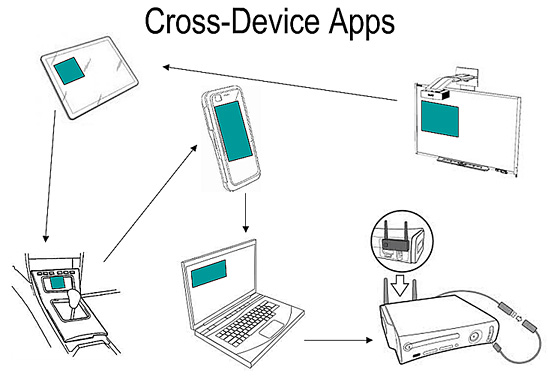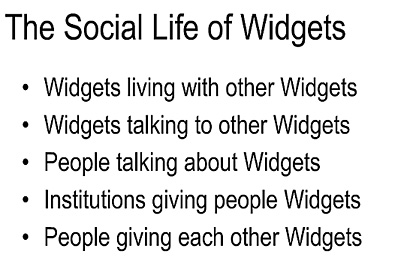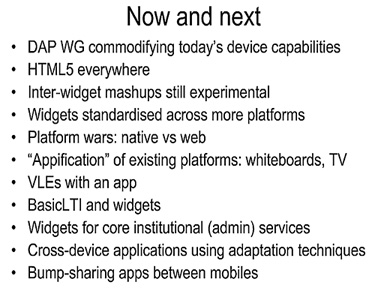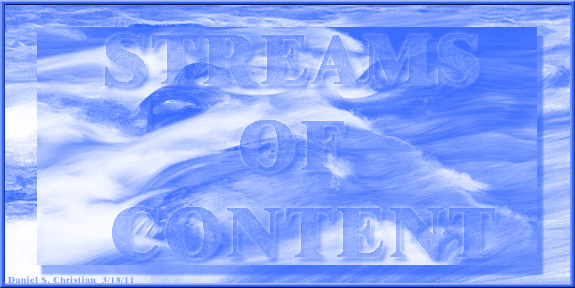



Ignite Great Lakes – Maria Andersen: Where’s the “Learn This” Button? — my thanks to Mr. Paul Simbeck-Hampson for this resource
Dr. Maria H. Andersen is the Learning Futurist for the LIFT Institute and a Math Professor at Muskegon Community College, where she organizes Ignite MCC. She writes the “Teaching with Tech” column for MAA Focus and has recently published articles in Educause Review and The Futurist. Lately she has been spending a lot of time building games for teaching math and musing about the future of learning and higher education. You can find Maria blogging on the Internet at TeachingCollegeMath.com or on Twitter at @busynessgirl.
SOCRAIT — a new learning layer on the Internet:
From DSC:
Immediately below is a presentation that I did for the Title II Conference at Calvin College back on August 11, 2011
It is aimed at K-12 audiences.
From DSC:
Immediately below is a presentation that I did today for the Calvin College Fall 2011 Conference.
It is aimed at higher education audiences.
Note from DSC:
There is a great deal of overlap here, as many of the same technologies are (or will be) hitting the K-12 and higher ed spaces at the same time. However, there are some differences in the two presentations and what I stressed depended upon my audience.
Pending time, I may put some audio to accompany these presentations so that folks can hear a bit more about what I was trying to relay within these two presentations.
The Singularity: Five technologies that will change the world (and one that won’t) — from MaximumPC.com by David Gerrold; originally saw this in Steve Knode’s July 2011 Newsletter
Excerpt I want to comment on:
Now, let’s try a thought experiment. If we apply Moore’s law and assume that the rate of scientific advancement doubles at the same rate as the computer power that we apply to research, then we can project that we will likely accomplish a whole 20th century’s worth of scientific advancement in 5 years—by 2015. As the rate continues to double, we’ll accomplish a century’s work in 2.5 years, then 1.25 years, 7.5 months, 3 months and 3 weeks, then a smidge less than two months, one month, two weeks, one week, then 3.5 days, 1.75 days, and if you ignore Zeno’s paradox, by the end of 2020 we will be accomplishing a century’s worth of research every day, and two weeks later, every second. And after that…?
From DSC:
This is why it is critical that all of us are tapping into streams of content. We can’t be dealing with damned up “water” — but we need to access ever-flowing-streams of content. We need to learn how to learn — and like learning! We’ll also need to know how to manage learning agents in order to sort through the information overload coming at us.
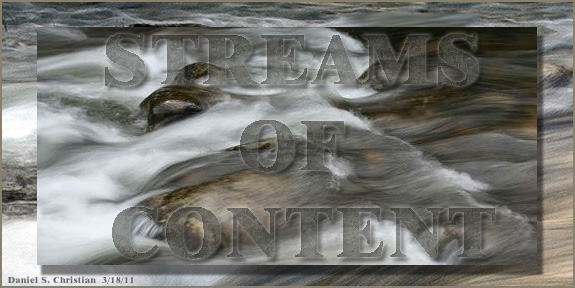
Also mentioned in the above article:
Also from Steve Knode:
Widgets and mashups for personal and institutional technologies — by Scott Wilson
Sample slides/excerpt:
Why we need less instruction — from Clive on Learning by Clive Sheperd
Excerpt:
Another reason you might back away from instruction as a strategy is because it is more efficient to provide how-to materials at the point-of-need – it isn’t learning that’s required, it’s performance support:
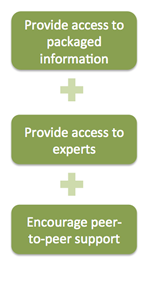
From DSC:
